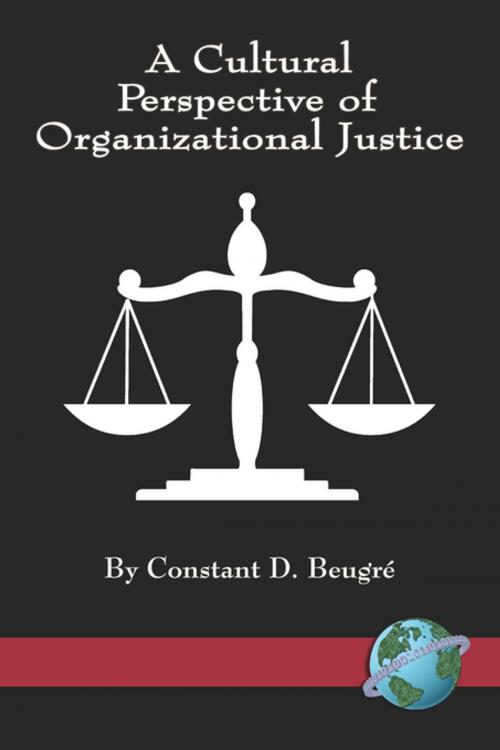A Cultural Perspective of Organizational Justice
Business & Finance, Management & Leadership, Industrial Management, Nonfiction, Reference & Language, Education & Teaching, Administration, Management| Author: | Constant D. Beugre | ISBN: | 9781607528036 |
| Publisher: | Information Age Publishing | Publication: | February 1, 2007 |
| Imprint: | Information Age Publishing | Language: | English |
| Author: | Constant D. Beugre |
| ISBN: | 9781607528036 |
| Publisher: | Information Age Publishing |
| Publication: | February 1, 2007 |
| Imprint: | Information Age Publishing |
| Language: | English |
This book analyzes the impact of culture on employee justice judgments and reactions to perceptions of fairness and unfairness. I start this book with the following two questions. Why is a book on culture and organizational justice needed? What does such a book add to the extant literature on organizational justice, especially, after the publication of the landmark work of Colquitt and Greenberg (2005), Handbook of Organizational Justice? Although there are no easy answers to these questions, in the following lines, I explain the reasons why a book on culture and justice is not only needed but also timely. There are at least three reasons for which a book on culture and organizational justice is needed. First, a book on culture and organizational justice is needed because "there are indications that culture exerts very important and wideranging effects on justice behavior including even generally shaping the likelihood that individuals will experience feelings of injustice" (James, 1993, p. 22). Second, globalization has led to the interrelatedness of world economies.Thus, most organizations not only operate in several countries, but they also employ people from different nationalities and cultural backgrounds. The resulting challenge is to find new ways of managing a culturally diverse workforce. Third, justice is inherent to any organized social group. As examples of social systems, organizations are arenas of justice concerns because their members compete for limited resources. The resources for which they compete include tangibles, such as money but also intangibles, such as status, power, and prestige (e.g., Tajfel & Turner, 1979; Turner, 1985). In the following lines, I elaborate on the three reasons why a book on culture and organizational justice is needed and timely.
This book analyzes the impact of culture on employee justice judgments and reactions to perceptions of fairness and unfairness. I start this book with the following two questions. Why is a book on culture and organizational justice needed? What does such a book add to the extant literature on organizational justice, especially, after the publication of the landmark work of Colquitt and Greenberg (2005), Handbook of Organizational Justice? Although there are no easy answers to these questions, in the following lines, I explain the reasons why a book on culture and justice is not only needed but also timely. There are at least three reasons for which a book on culture and organizational justice is needed. First, a book on culture and organizational justice is needed because "there are indications that culture exerts very important and wideranging effects on justice behavior including even generally shaping the likelihood that individuals will experience feelings of injustice" (James, 1993, p. 22). Second, globalization has led to the interrelatedness of world economies.Thus, most organizations not only operate in several countries, but they also employ people from different nationalities and cultural backgrounds. The resulting challenge is to find new ways of managing a culturally diverse workforce. Third, justice is inherent to any organized social group. As examples of social systems, organizations are arenas of justice concerns because their members compete for limited resources. The resources for which they compete include tangibles, such as money but also intangibles, such as status, power, and prestige (e.g., Tajfel & Turner, 1979; Turner, 1985). In the following lines, I elaborate on the three reasons why a book on culture and organizational justice is needed and timely.















